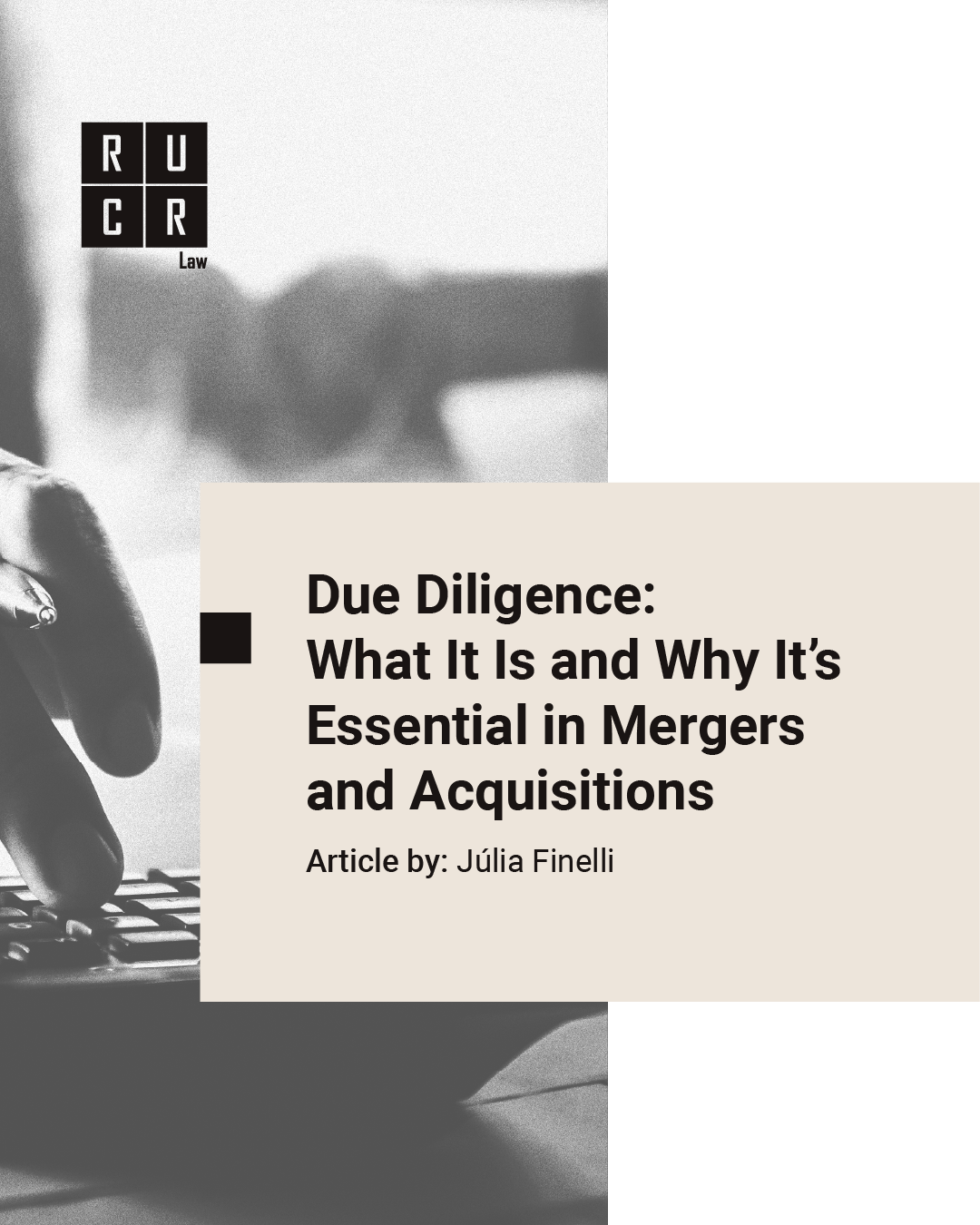
Due Diligence in Mergers and Acquisitions: What It Is and Why It Matters
When considering a new business or investment, the parties involved want to ensure that it will be efficient, transparent, and done with the least amount of risk possible.
In mergers and acquisitions (M&A), performing thorough Due Diligence, or Pre-Due Diligence, becomes essential for making accurate decisions and ensuring the success of the deal.
Due Diligence is a critical step in this process as it is an investigative procedure conducted by qualified professionals, aimed at gathering accurate and detailed information about the most important aspects of the other party involved, identifying risks, and helping set transaction values.
A well-conducted Due Diligence can uncover hidden risks that could drastically change the negotiation, alter the price, or even make the deal unfeasible. This analysis can be performed in different areas of a company, such as accounting, finance, operations, legal, and commercial.
From a legal perspective, Due Diligence helps identify and assess risks related to ongoing lawsuits, executions, liens, legal liabilities, especially in labor and tax matters, issues with contracts, or any other legal risks that could affect negotiations.
Performing this analysis makes decision-making safer. Due Diligence enables setting a fair price, establishing deal terms, and assessing feasibility by considering risks and the company’s reputation in the market, aiming to make the agreement beneficial for all parties involved.
Additionally, this analysis is important to ensure that all regulatory and legal obligations are met in the acquisition process.
In this context, it’s essential to use appropriate investigative tools to find potential compliance issues that could impact the future of the business or cause losses.
It’s vital that both parties involved in Due Diligence – the one providing the information and the one investigating it – are supported by experienced professionals.
On the part of the investigating company (the buyer in an M&A process), the advisory should help collect the required documentation from the seller and analyze it, identifying and calculating any risks. It should also maintain a dialogue with the selling party to ensure full clarity of the facts.
On the part of the selling company, which provides its information, the advisory is necessary to carry out proper and complete documentation collection and to engage with the other party, clarifying situations to avoid misunderstandings.
At RUCR Law, we have a system we call “Due Diligence Always Ready,” a tool for compiling documents and information that accelerates any Due Diligence process through prior document organization.
The partners of the companies involved in an M&A transaction must pay special attention to this step of the negotiation, as it is a critical part of the process.
At RUCR Law, we have a specialized team to handle all these matters, conducting Due Diligence in M&A transactions for both the selling and the buying parties.
